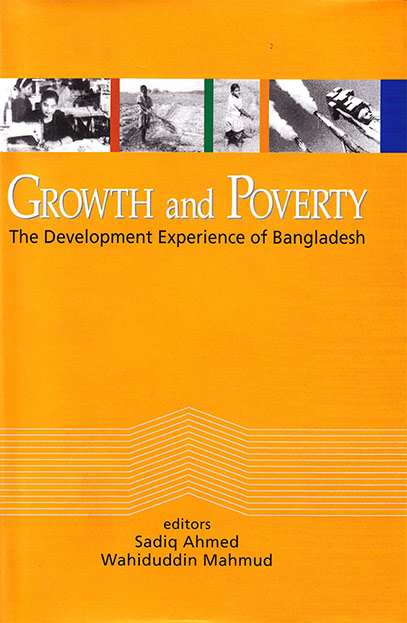- Shop
- Business, Economics and Development
- Growth and Poverty: The Development Experience of Bangladesh
Growth and Poverty: The Development Experience of Bangladesh
https://uplbooks.com/shop/9847022000448-growth-and-poverty-the-development-experience-of-bangladesh-6640 https://uplbooks.com/web/image/product.template/6640/image_1920?unique=3d813f3
| Language: English |
Tags :
Book Info
The book is the outcome of a seminar that looked at the nature of challenges and the policy options facing Bangladesh in achieving accelerated, sustained and equitable economic growth. Since the early 1990s, Bangladesh has notably improved its economic growth performance following the introduction of market-oriented liberalising economic reforms. The positive impact of economic growth on poverty was, however, compromised to some extent by a worsening of income distribution. This calls for a deeper understanding of the growth-inequality nexus, both analytically and in terms of the policy implications for supporting more inclusive and pro-poor economic growth. There is also a growing concern regarding how far the economic growth momentum can withstand a weakening of the institutions of economic and political governance. Institutional reforms, which have lagged behind economic reforms, are needed to address a whole range of factors affecting investment incentives and production efficiency. Compared to the modest progress in poverty reduction, there has been truly remarkable improvement in social and human development indicators such as in respect of infant and child mortality, female school enrollment and the adoption of birth control. It remains a puzzle how Bangladesh could make such progress in social development despite widespread poverty and poor governance in public service delivery. The early gains from the adoption of easy low-cost solutions, the contribution of NGOs towards raising public awareness, favourable budgetary allocations and government policy support have all helped. However, sustaining the positive trends may become increasingly difficult without larger public social spending and an improvement in service delivery along with a more rapid reduction in poverty. The contributions in the volume are arranged in three sections: Employment, inequality and pro-poor growth Political economy and policy environment Service delivery and social development.

Sadiq Ahmed
Sadiq Ahmed is the Director of the Poverty Reduction and Economic Management unit, South Asia Region, at the World Bank. His previous positions at the World Bank include Country Director for Pakistan and Afghanistan and Chief Economist of the South Asia Region. He has published in the areas of economic development, public finance, international trade and monetary economics.

Wahiduddin Mahmud
Wahiduddin Mahmud is a Professor of Economics at the University of Dhaka. He was an Advisor (Minister) for Finance and Planning of the non-party Caretaker Government of Bangladesh in 1996. His recent publications include an edited volume of the International Economic Association titled Adjustment and Beyond: The Reform Experience in South Asia.



